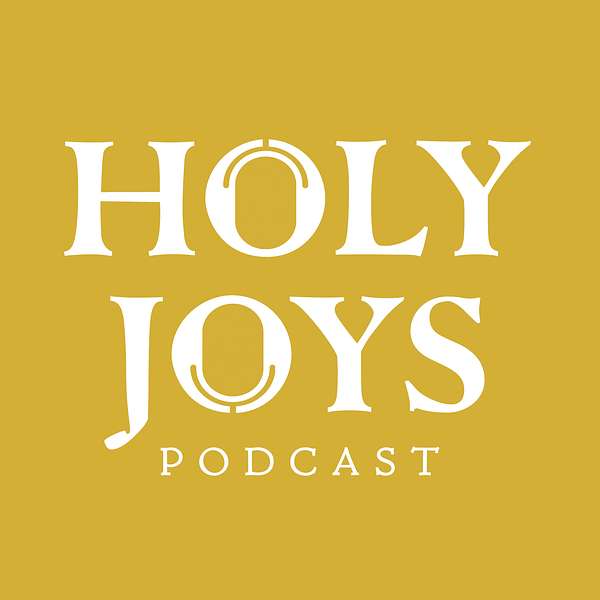
Holy Joys Podcast
A discussion of theology and ministry practice, all for a holy, happy church. A ministry of holyjoys.org.
Holy Joys Podcast
Philip Brown on Wisdom and Holiness, Part 2
•
Johnathan Arnold
Use Left/Right to seek, Home/End to jump to start or end. Hold shift to jump forward or backward.
In this episode, Johnathan Arnold continues discussing the relationship between wisdom and holiness with Dr. Philip Brown.
Highlights from Philip Brown:
- To fear Yahweh is to do two things: to obey him by turning aside from evil and doing what is right, and secondly, to worship him.
- The word righteous in the Book of Proverbs refers to someone who is both in right relationship with God and living in accordance with his will.
- There is no part of life—from human sexuality, to finances, to interpersonal relationships, to the use of the tongue, to the interior life, to government—that Yahweh's way of thinking does not touch, and so Proverbs branches out like the many-branching roots of a tree into "every good path" to give God's people direction in how to live life God's way.
- Any time that Scripture talks about how we ought to live so that we are like God, it's talking about holiness. There is no part of Scripture that addresses human moral obligation that is not talking about holiness, though it often doesn't use that language. So the book of Proverbs is actually a manual on holiness on the mind, first, and then holiness of life, second.
- It is the interior life—the life of the mind—that is the ultimate location of battle.
- Many Old Testament theologians seem to think that a Christian reading of the Old Testament is an imposition of an alien thought framework. And sadly, that has been pretty characteristic of evangelical Old Testament scholarship. I believe that such an approach is flatly wrong. It's missing the way in which the New Testament, under the inspiration of the Holy Spirit, appropriates and reads the Old Testament.
- When we appropriate Proverbs as believers, we are following the direction of the Holy Spirit in the New Testament by reading Proverbs as directly addressing God's children at any age or stage of life.
- The contrast between the righteous and the wicked is not a contrast between the especially good and the especially bad, but between those who are in harmony with God's word and those who are not in harmony with God's word.
- Within the broad category of wicked, there is a gradation from the naive to the fool to the scoffer or scorner.
- The essential feature of the simple is that they are not able to perceive what lies below the surface of things. They are not able to penetrate beyond appearances. They tend, therefore, to operate on the moment and how they feel.
- The heart of folly is self-centeredness. Folly is bound up in the heart of every child, and I would identify that folly as what is essentially wrong with us. We're own-way people.
- Many people who have learned to live by rules—they can check all the boxes—but they have not learned to think like Yahweh, to think like Jesus.
- We tend to have clouded perception when we suffer. Suffering tends to turn us in-ward rather than God-ward, because of our fallenness.
- Everything that I have comes from God, is on loan from God, and God can take away and not be doing me wrong in any sense.
- The questions you ask yourself determine your focus. If we're asking, "Why this? Why me? Why now?" we're asking the wrong questions. But if we're asking, "God, what good are you planning? God, how can I reflect who you are in the midst of my suffering?" then we are focusing where God wants us to.
- You're not supposed to be looking for permanence in this life as a means fo judging meaning and significance, because there's nothing permanent in this life. Even when we work for God in the kingdom, we're not looking at permanence as the ground of our significance. This is a profoundly counter-cultural way of thinking.
- You will not find meaning or satisfaction in any of life's components, but only in life's Creator.

